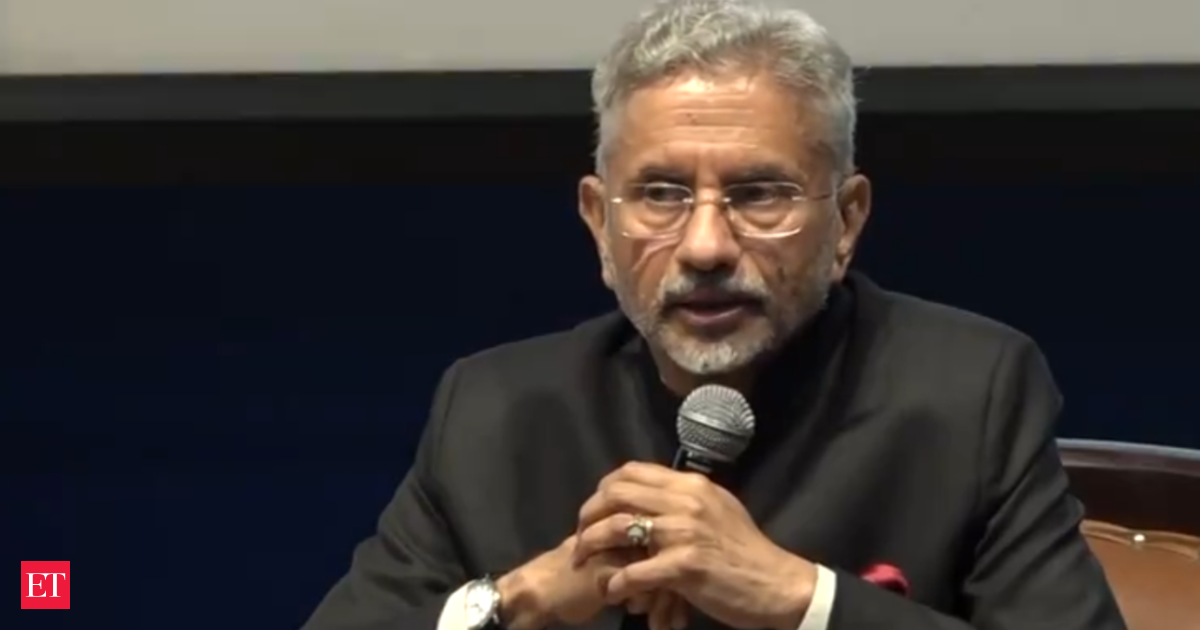External Affairs Minister S Jaishankar held wide-ranging talks with Iranian counterpart Hossein Amirabdollahian on Monday. They discussed India’s framework for involvement with the strategically vital Chabahar port and the North-South connectivity project. The Chabahar port, being developed by India and Iran, aims to boost connectivity and trade ties. The port is also an important hub for the International North South Transport Corridor (INSTC). Jaishankar called on Iranian President Dr Ebrahim Raisi and conveyed the greetings of Prime Minister Narendra Modi. They discussed pressing global and regional issues, including the situation in Gaza, threats to maritime shipping, Afghanistan, Ukraine, and BRICS cooperation.
Jaishankar highlighted India’s interest in benefiting from Iran’s unique geographical position to access markets in Central Asia, Afghanistan, and Eurasia. He emphasized India’s involvement in the development and operations of the Chabahar port, which is a joint project with a joint vision of connectivity.
The discussion also focused on the long-term framework for India’s involvement with the Chabahar port and the INSTC connectivity project. They reviewed all aspects of the bilateral engagement comprehensively and exchanged thoughts on some pressing global and regional issues.
Jaishankar mentioned that regional connectivity has been a critical pillar of India-Iran relations. He reiterated India’s commitment to the International North South Transport Corridor (INSTC), a 7,200-km-long multi-mode transport project connecting India, Iran, Afghanistan, Armenia, Azerbaijan, Russia, Central Asia, and Europe. India is keen to benefit from Iran’s geographical position and establish better access to markets in Central Asia, Afghanistan, and Eurasia.
The Chabahar port, located in the Sistan-Balochistan province on Iran’s southern coast, is being jointly developed by India and Iran. The port is expected to enhance connectivity and trade between the two countries and serve as a key hub for the INSTC project.
During the talks, both ministers expressed concern over recent events in West Asia and emphasized the importance of preventing further escalation of violence and hostilities. They discussed the deeply concerning situation in Gaza and emphasized the need to address the visible humanitarian crisis. Jaishankar mentioned that India has delivered shipments of relief material to Gaza and welcomed the international community’s efforts in creating sustainable humanitarian corridors.
Jaishankar reiterated India’s long-standing support for a two-state solution in Palestine and stressed the need for all parties to avoid provocative and escalatory reactions. He emphasized the importance of facilitating movement towards dialogue and diplomacy.
The ministers also discussed the threats to maritime shipping in the region and highlighted the importance of addressing this issue promptly. They expressed concern over recent attacks in the vicinity of India and emphasized that this situation is detrimental to the interests of all parties.
In addition to the aforementioned topics, the ministers also discussed Afghanistan, Ukraine, and BRICS cooperation. The Caucasus region and Ukraine conflict were also part of the discussions.
Overall, the talks between Jaishankar and his Iranian counterpart were productive and covered a wide range of issues. The visit provided an opportunity to convey condolences to Iranian leaders on the recent terrorist attack in Kerman. Jaishankar expressed India’s readiness for fresh investments in the fields of transportation and transit in Iran. He invited Iranian Minister of Roads and Urban Development Mehrdad Bazrpash to visit India.
Both countries have maintained a regular momentum of high-level interactions, and their leaders have been in frequent touch through letters and phone calls. The deep cultural, literary, and linguistic ties between India and Iran form a unique foundation for increasing exchanges. The Indian government has even included Persian as one of the nine classical languages in the country’s new education policy.
Jaishankar also met Secretary of the Supreme National Security Council Ali Akbar Ahmadian and discussed bilateral and regional issues. The meeting provided an opportunity for a good discussion on important matters.











